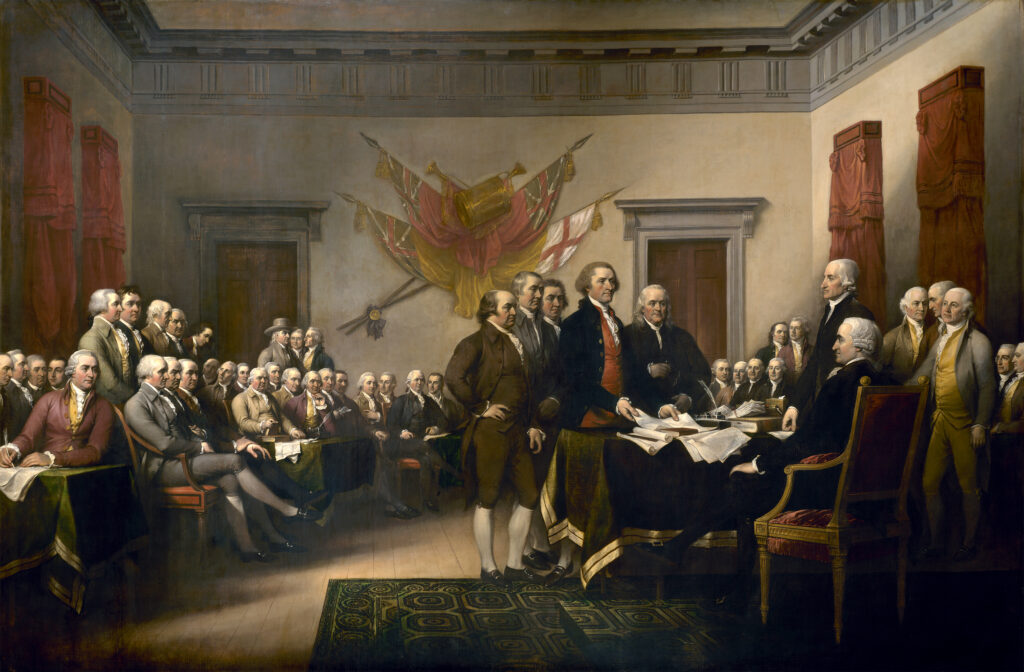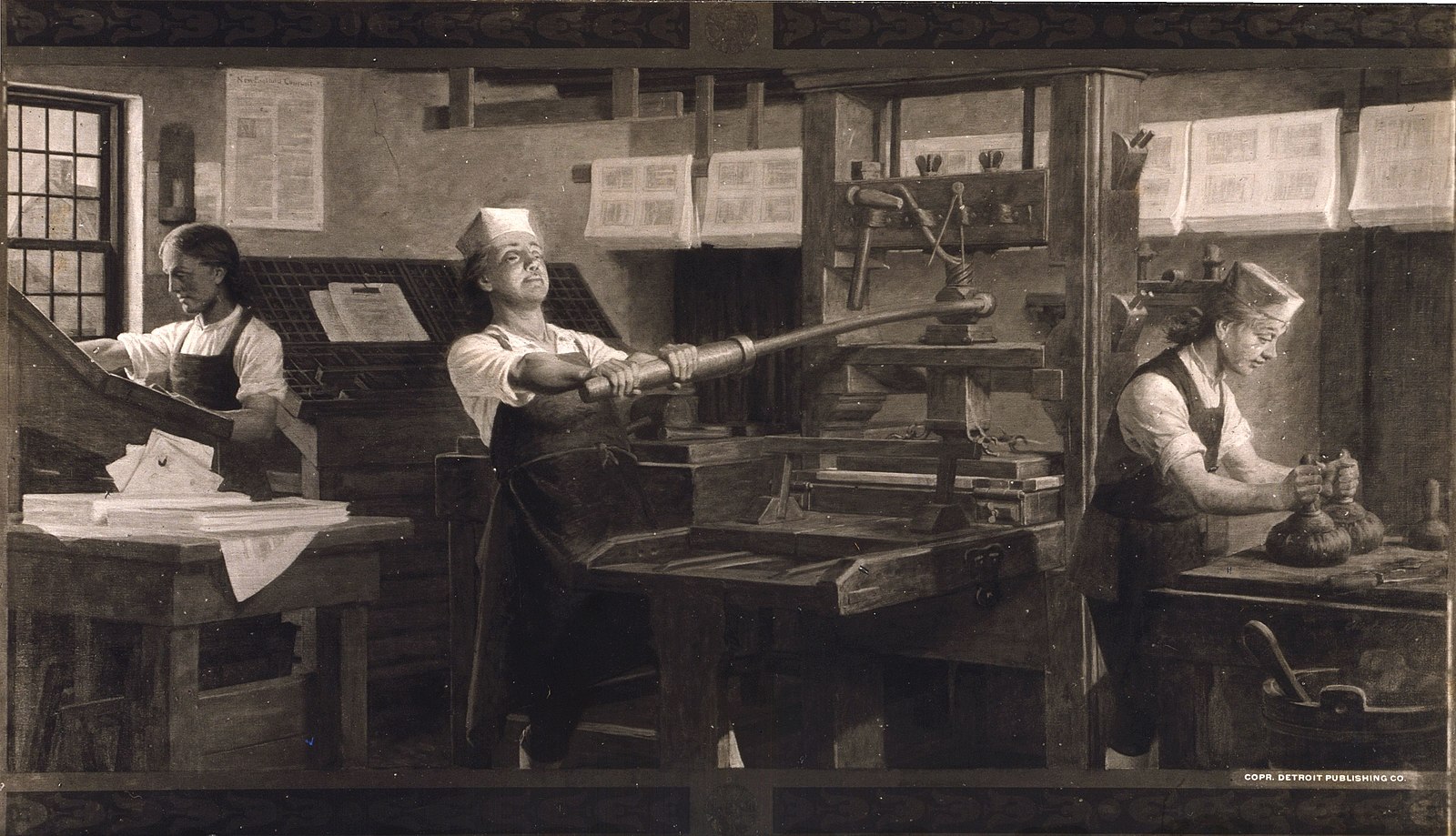Apprenticeships were woven into the founding of the United States. Several Revolutionary leaders apprenticed in different trades. In honor of our country’s 250th anniversary, we will be highlighting how these tradespeople helped build our nation.
Today’s guest blog comes from The Campaign for Historic Trades Director Natalie Henshaw. The Campaign currently sponsors three apprenticeships with the Department of Labor. Apprenticeships are the traditional way to learn skilled trades, allowing people immediate employment and income combined with structured training and education. For millennia, new workers have learned skills under the tutelage and guidance of master craftspeople in a structured one-on-one, project-based setting. The Campaign has developed a suite of historic trades apprenticeships that apprentices, employers, and training programs alike can utilize.
Benjamin Franklin
Benjamin Franklin was born in Boston in 1706, one of seventeen children. His father was a soap and candle maker. From a young age, Benjamin planned to enter the clergy. However, with so many children to support, his father could not afford to pay for a college education. Instead, Benjamin was set on the path to become an apprentice.
Colonial America imported apprenticeship training models from European guild systems. A master tradesperson would sign a contract, or indenture, with a child’s parents. In exchange for a fee, the master agreed to teach the child a trade, while also providing room and board.

Benjamin and his father disagreed about which trade he should pursue. Benjamin wanted to work on ships, but his father considered that occupation beneath the family’s social rank. After a brief period apprenticing with his father, Benjamin explored other trades including bricklaying, carpentry, metalwork, and cutlery. Ultimately, his older half-brother, John, signed a nine-year indenture for twelve-year-old Benjamin to apprentice as a printer.
During these years, Benjamin honed his skills in the printing trade while also studying independently to improve his literary abilities. He developed his writing and debate skills through discussions with friends, advocating for causes such as women’s education. He read every book he could find, even adopting a vegetarian diet based on one of them. Before long, he began submitting anonymous articles to his brother’s newspaper, many of which were published.
Despite his successes, Benjamin’s apprenticeship was not without hardship. John treated him as an apprentice rather than as family, often arguing with and physically abusing him. When John was arrested and prohibited from printing the newspaper after publishing an article critical of local authorities, Benjamin became publisher in-name. This situation allowed him to negotiate an early end to his indenture. However, John retaliated by preventing him from working for any other printer in Boston.
Determined to continue in his trade, Benjamin left Boston with very little money or connections, first traveling to New York City and then to Philadelphia in search of work. He interviewed with one printer who was illiterate and another who could not operate the equipment. More qualified than either, Benjamin ultimately traveled to London to further improve his skills before returning to Pennsylvania.
Benjamin went on to become a regional leader and influential figure in American history. He founded the first lending library in America and the first fire department in Philadelphia. He published a newspaper and Poor Richard’s Almanac, which at the time was second in popularity only to the Bible. He served in colonial government and acted as postmaster general.
Among the many lawyers and plantation-owners, Benjamin became one of the most prominent and respected leaders in the American Revolution, in no small part due to his experience as a tradesperson and business owner. He signed the Declaration of Independence, negotiated the peace treaty ending the Revolutionary War, and contributed to the Constitutional Convention that shaped the United States government. He also became the first president of the Pennsylvania Society for Promoting the Abolition of Slavery.

The first US Postage Stamp, issued in 1847 in honor of Benjamin Franklin
In his memoirs, Benjamin wrote extensively about his early years apprenticing and learning the printing trade. Apprenticeship provided him with the opportunity to gain skills and build a career, despite his family’s financial limitations and his inability to attend college. Benjamin Franklin’s experience mirrors that of many modern tradespeople and serves as an inspiration for what apprenticeships can offer both American citizens and society.

Want to know more?
- Read Benjamin Franklin’s autobiography, available online at archive.org.
- Read more about 18th century American apprenticeships from Pennsylvania LEGACIES.
- Finding Franklin, a resource guide from the Library of Congress

